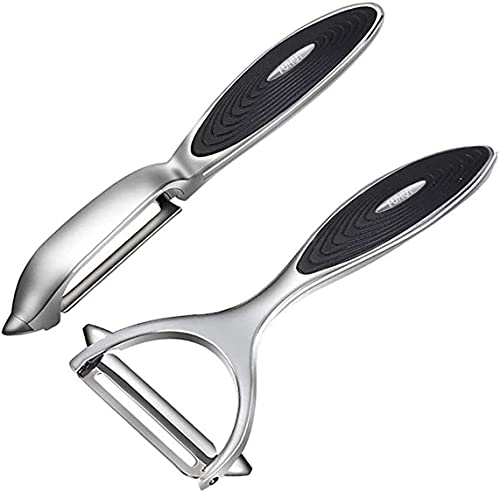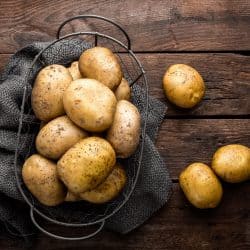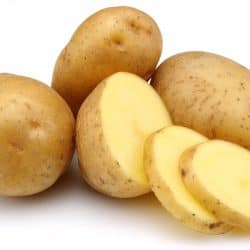If you've ever been digging through your refrigerator and discovered produce that you've long since forgotten, you will probably have wondered if they are past their safe use. You probably know that potatoes can be kept for longer than most anything you've purchased fresh, but how long is too long? We researched the science on why potatoes keep as long as they do and how long they can be safely stored. Can you keep potatoes in your refrigerator?
Potatoes keep well in a refrigerator. The length of time you can safely store them in this way will depend on the type of potato and what you are storing them in. Potatoes removed from their plastic bags and kept in a crisper drawer can be safely stored in a refrigerator for up to four months.
Now that you know that it's safe to store potatoes in the refrigerator, we'll break down what factors determine the length of time you can keep them inside this appliance. You might also be wondering when you should throw potatoes out or if sprouted potatoes are poisonous. To see what we've discovered, read ahead in this post.
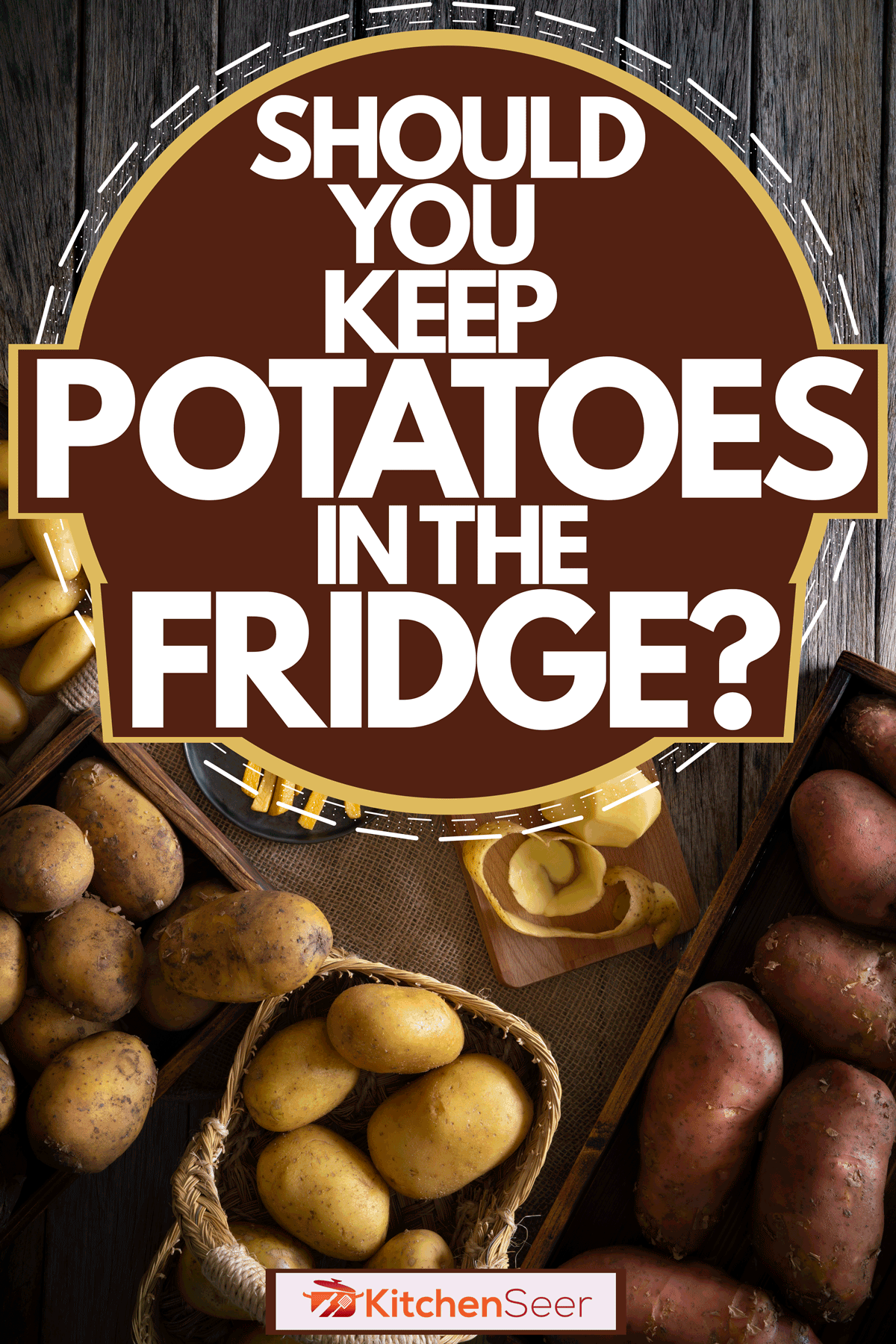
How NOT To Store Potatoes
Before we get into the best methods of storing potatoes, let's discuss the common mistakes people will make in storing this popular tuber.
Out of sheer convenience, you might be tempted to leave the potatoes inside the plastic bag they were brought home in. They're stored like that in the grocery store, so what could the harm be?
Potatoes need to breathe. While they are shipped and stored in plastic bags, this is meant to be temporary. If you leave them inside this bag after you bring them home, the moisture the potatoes naturally shed has nowhere to escape. This will cause the potatoes to turn mushy and rot fairly quickly.
You should also refrain from leaving the potatoes in any area that exposes them to sunlight or warm air. We'll discuss how this drastically shortens their useful life later in the post.
What is the best way to store potatoes?
Potatoes can be stored in various ways, but storing them properly will ensure that they provide the maximum useful life. If you've ever had them sit out on a counter for a week or two, you've no doubt noticed that they've begun sprouting new growth. Or maybe you've picked one up and felt that it was mushy under the skin. So, what's the best way to store them?
Potatoes naturally crave warmth and sunlight. This is why they sprout when left exposed. Sprouting can indicate that there will be traces of the toxin solanine present, but we'll discuss that later in this post. Ideally, you want to store your potatoes in a place where they don't get the urge to sprout new growths. Anyplace dark and relatively cool is best.
Cutting off the potato from the sun and heat can make it last for months. While you may have room in your refrigerator for them, others find that stand-alone vegetable bins work perfectly for storing potatoes.
Advocates of storing potatoes in bins like to point out that potatoes kept in the refrigerator for too long won't cook as well. Too much time at this temperature makes the starches slowly convert to sugars. This can cause a little bit of discoloration when they are cooked. While storing potatoes in a refrigerator is still a perfectly acceptable method, most experts agree that cellars or bins work a little better.
To view this bin on Amazon, click here.
To view this bin on Amazon, click here.
How long can you store potatoes?
Buying groceries in bulk can save you money and time. Unfortunately, perishable items have a shelf life that needs to be abided by. Knowing this, you might be hesitant to buy more potatoes than you readily need. How long can you store potatoes safely?
Thankfully, potatoes are one perishable that has a long useful life. Stored correctly, some types of potato will last up to four months.
How long potatoes last will depend on the type of potato and the storage method used. Below, we've created this table that shows how long popular variants of the potato will keep.
| Potato | Pantry or bin | Fridge | |
|---|---|---|---|
| Shelf Life | Shelf Life | ||
| Russet or White Potatoes | 3-5 Weeks | 3-4 Months | |
| Yukon Gold Potatoes | 2-3 Weeks | 2-3 Months | |
| Red or New Potatoes | 2-3 Weeks | 2-3 Months | |
| Fingerlings | 2-3 Weeks | 2-3 Months | |
| Sweet Potatoes | 3-5 Weeks | 2-3 Months |
When should you throw out potatoes?
Potatoes that have been stored for a bit should be thoroughly inspected before being prepared. If you notice any soft spots, this is an indicator that some rot has set in. That doesn't mean you have to throw out the whole potato, though. You can easily cut out a soft spot or two and still safely use the potato.
Some sprouting should be treated the same way. While you should never eat the sprouts, it's ok to use a potato after a sprout has been carefully cut away from it.
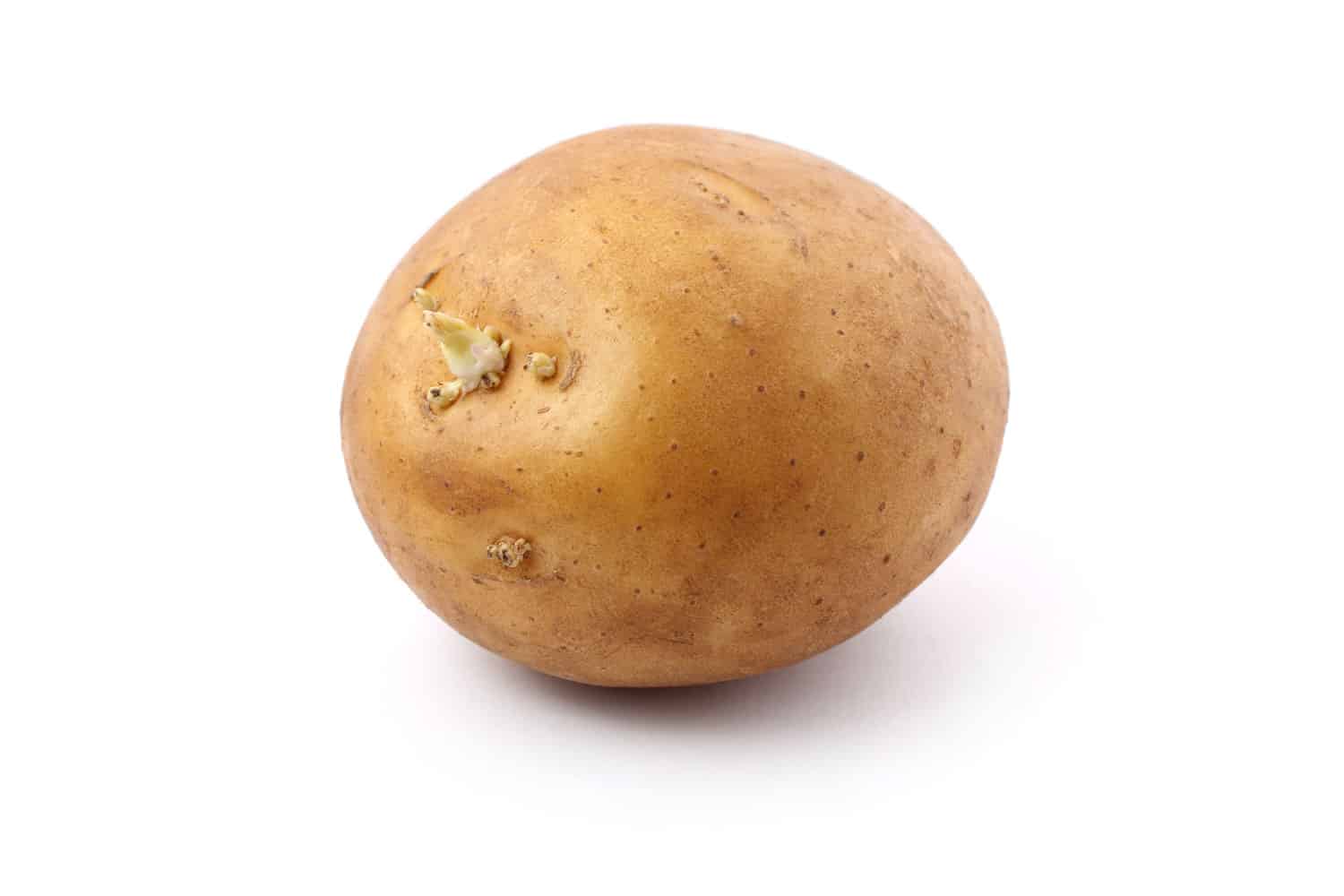
Earlier in this post, we mentioned the toxin solanine. When potatoes are exposed to sunlight, it will use the sun's UV rays to produce chlorophyll. A presence of this will indicate that solanine is also inside the potato. Solanine is a neurotoxin and is dangerous for humans to consume.
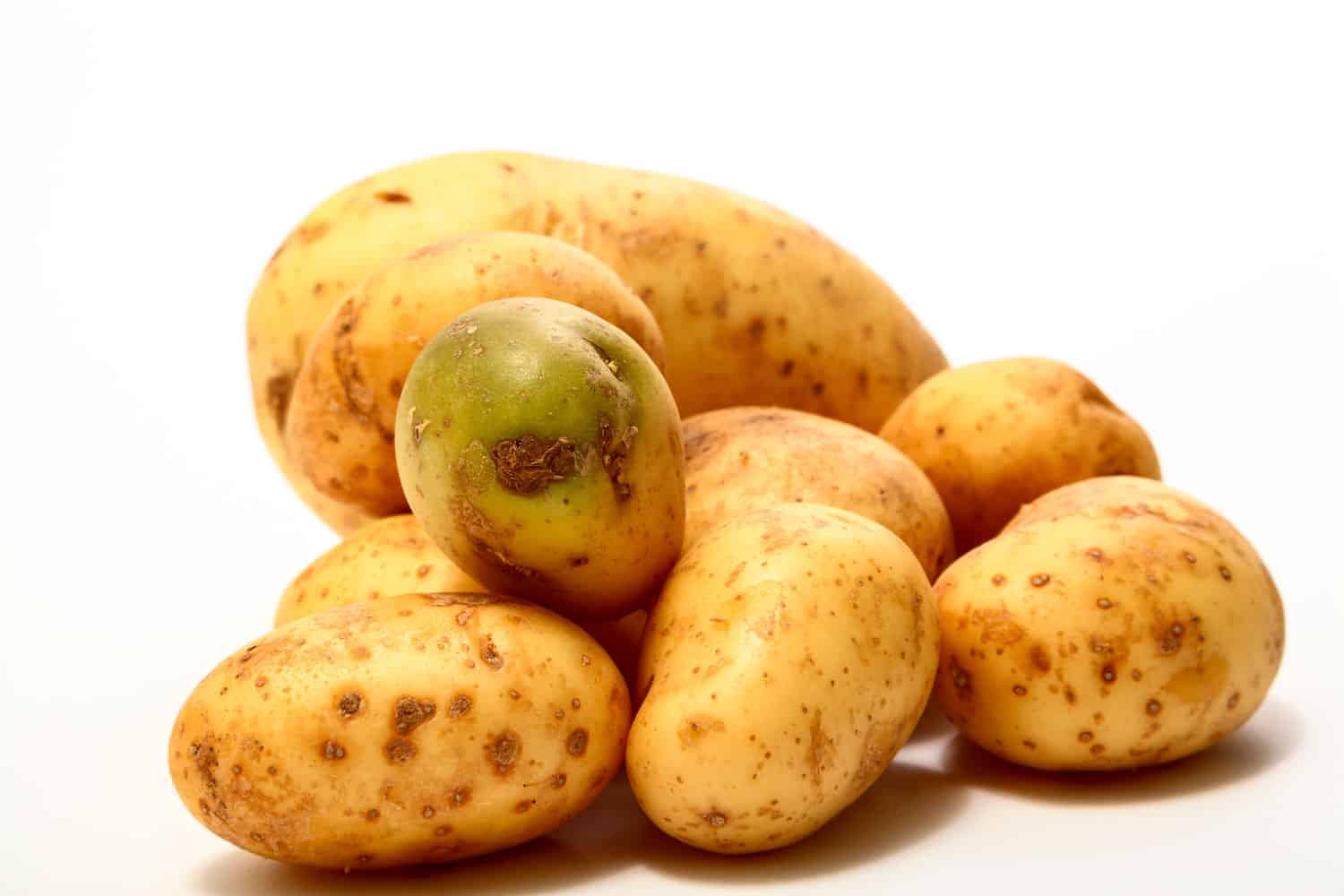
You'll know that your potato has solanine if you see green areas on the skin. A spot or two is fine. Like you would with a small soft spot, just carefully cut it away. But if entire areas of the potato are green, it's a good idea to discard it and select another.
Additionally, if you notice that your potato is wrinkled, mushy, or has a rotten odor, it's best to leave it in the compost pile.
Are sprouted potatoes poisonous?
If you've kept potatoes around for very long, you've no doubt encountered at least one that has begun to sprout new growth. You may have erred on the side of caution and discarded that particular potato entirely. But is this necessary?
Eating the sprouts themselves should be avoided at all costs. But you can still use the potato if the sprouts are removed from it. Using a vegetable peeler, you can easily peel off the sprout and the skin around it. This will make the potato safe to eat.
Keep in mind that while it's ok to eat a potato that has had a small sprout, or two cut away from it, too much sprout growth has been known to change the flavor of the potato itself substantially. So if the potato has more than a few, use your better judgment on if you should cook with it or not.
To view this vegetable peeler set on Amazon, click here.
In Closing
We learned that potatoes could be safely stored in the refrigerator, although the preferred method to keep them is in a dark vegetable bin or cellar. Potatoes can be stored for up to four months, depending on the type of potato and how it's being contained.
Knowing when to discard a potato is essential to ensure good health. While some soft spouts and sprouting can be safely cut away from a potato, an excess of either means you should probably move on to the next one. Green spots on a potato indicate the neurotoxin solanine's presence, which needs to be completely cut away from it before it is cooked and consumed.
Potatoes have been a popular item on kitchen tables for centuries. They are inexpensive and packed with essential vitamins, making them a sure thing to be present in kitchens for years to come.
If you found this post about potatoes to be helpful, we believe you'll find some great information in the following cooking posts:
What Potatoes Are Best For Chips?
How To Air Fry Potatoes – With 10 Tasty Recipes!



